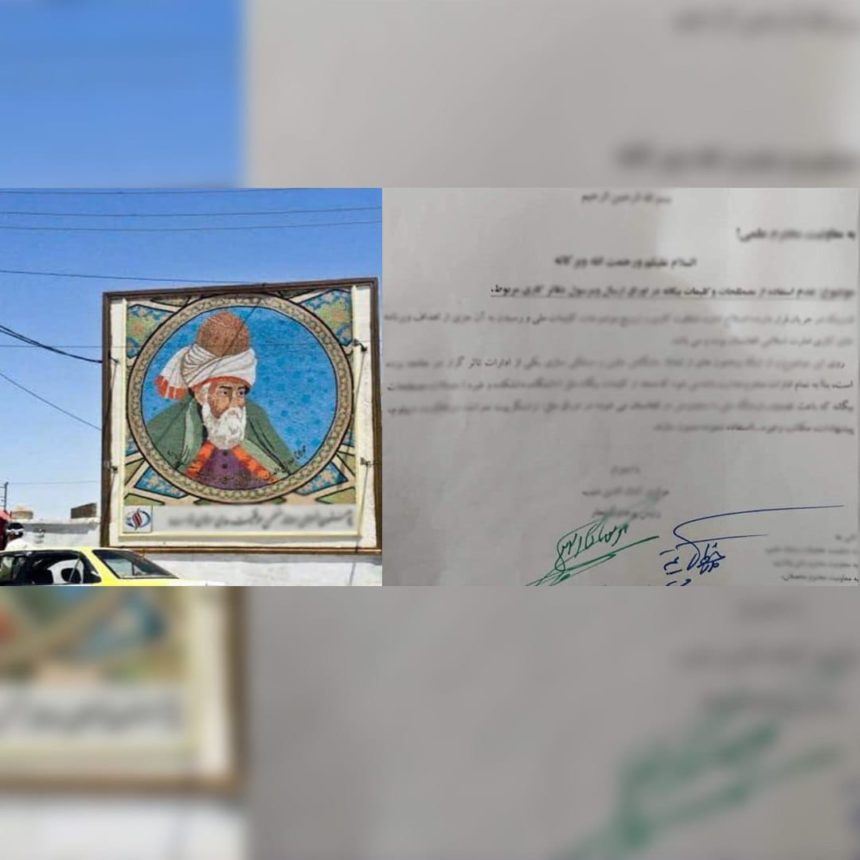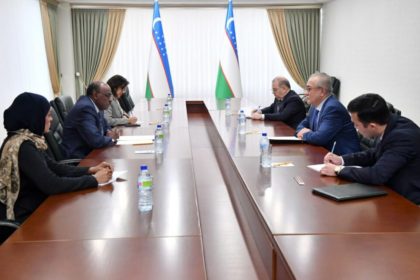The Taliban, in their two-year tenure marked by fascist policies, discrimination, tribalism, and absolute political power, have embarked on official and deliberate efforts to marginalize and erase the indigenous cultural identity and national language (Persian) of the Afghanistani people. Over the past two years, they have employed various methods to impose their own identity and language on governmental and societal institutions, particularly targeting non-Pashtun cultural identities. In the latest incident, the Taliban, in a culturally intolerant and hostile move, completely demolished the memorial of Jalaluddin Mohammad Balkhi, a prominent Persian-speaking poet, philosopher, and mystic, located at in the center of Mazar-i-Sharif. This monument of Maulana, situated at one of the intersections in the center of Balkh province, has been systematically destroyed by this group.
Cultural experts and citizens of the country assert that the Taliban, alien to human culture and civilization and possessing only a terrorist and violent identity, aim to damage the cultural values and identities of non-Pashtun ethnic groups. Their goal is to align their historical objectives, essentially imposing their identity and dissolving the identities of non-Pashtun ethnic groups. Maulana Jalaluddin Mohammad Balkhi, born in Balkh province, a great poet, philosopher, and mystic of the 7th century Hijri, is renowned not only in the entire Persian cultural domain but globally.
According to cultural analysts, “The Taliban, in their dual opposition to Maulana Balkhi and his cultural identity, namely Persian, exhibit a hostile animosity. Firstly, his affiliation with the illustrious Persian civilization, and secondly, the superiority of his thoughts as a mystic and scholar in the human world for presenting a moderate interpretation of Islam.” Previously, one of the Taliban’s tribal actions against the Persian language and the authentic identity of Greater Khorasan was the explicit and evident statements of Mohammad Yonus Rashed, a young official of their Ministry of Information and Culture, during a trip to Bamyan province. In a meeting with some of the province’s youth, he stated, “Afghanistan does not need Persian, and there is no need for them to learn Persian literature.”
This Taliban official deemed teaching Persian language and literature in universities as insignificant and declared that the youth should study disciplines that enable them to acquire advanced military tools. Before this, the Taliban’s Ministry of Higher Education of the Taliban had officially sent written instructions to all public and private universities, ordering them to refrain from using Persian words in their writings, theses, and research papers. Pursuing this, they even removed the term “university” from the signboards installed at the gates of the country’s universities. Mazar-i-Sharif, as the capital of Balkh, which is the cradle and home of hundreds of renowned Persian-speaking poets, writers, and intellectuals, adorned in recent years with images and murals of faces and works of Persian-speaking poets, has once again become the target of destruction by the Taliban with their control over the country. They initiated their first act of anti-Persian sentiment and cultural discrimination by demolishing the famous “Noble Figures Wall, on which artists from Balkh had engraved images and works of nearly 20 renowned Persian-speaking poets and writers. After that, they proceeded to destroy the statues of Amir Ali Shir Nawayi, a prominent poet and politician who spoke both Uzbek and Persian languages.
In the latest incident, the head of Takhar University, a Taliban military official, has issued an official letter instructing all faculties and administrative departments of the university to refrain from using Persian words such as “faculty” and “university” in their texts and documents. This Taliban member, who himself used English words like “transcript and diploma” in this official document, regarded Persian words like “faculty” and “university” as foreign and harmful to the culture and national language of Afghanistan.






